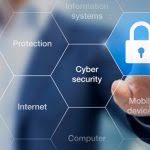UnitedHealth CEO Andrew Witty testifies about cyberattack.
The recent cyberattack on UnitedHealth Group, one of the nation’s largest health insurance companies, sent shockwaves through the healthcare industry. CEO Andrew Witty’s testimony before the House Finance Committee shed light on the devastating impact of the attack, which crippled hospital and pharmacy operations for weeks.
The attack, which occurred in February, involved a Russian ransomware gang stealing data from Change Healthcare, a vital system used to process health insurance claims. The scale of the disruption was significant, with hospitals and pharmacies struggling to operate smoothly due to the compromised system.
While the specifics of the attack and the ransom amount remain undisclosed, the fact that UnitedHealth ultimately paid a ransom raises serious concerns. This incident highlights the growing vulnerability of healthcare systems to cyberattacks, with ransomware gangs increasingly targeting critical infrastructure.
What does this mean for patients and the healthcare industry?
* Increased risk of data breaches: The attack underscores the vulnerability of sensitive patient data stored within healthcare systems. This raises concerns about potential identity theft and medical fraud.
* Disruption to vital services: The shutdown of hospital and pharmacy operations demonstrates the potential for cyberattacks to significantly impact patient care and access to essential medications.
* Financial strain on healthcare providers: The costs associated with recovering from a cyberattack, including paying ransoms, can be substantial, further straining already tight budgets.
What can be done to mitigate future attacks?
* Strengthening cybersecurity infrastructure: Healthcare providers need to invest in robust cybersecurity measures, including multi-factor authentication, encryption, and regular security audits.
* Improving data security practices: Protecting patient data requires implementing strong data security policies and procedures, including data encryption and access control measures.
* Increasing collaboration and information sharing: Collaborative efforts between healthcare providers, cybersecurity experts, and government agencies are crucial to sharing best practices and intelligence on emerging threats.
The UnitedHealth cyberattack serves as a stark reminder of the growing threat posed by cyberattacks to the healthcare industry. It’s a wake-up call for all stakeholders to prioritize cybersecurity and ensure the protection of patient data and the continuity of vital healthcare services.






